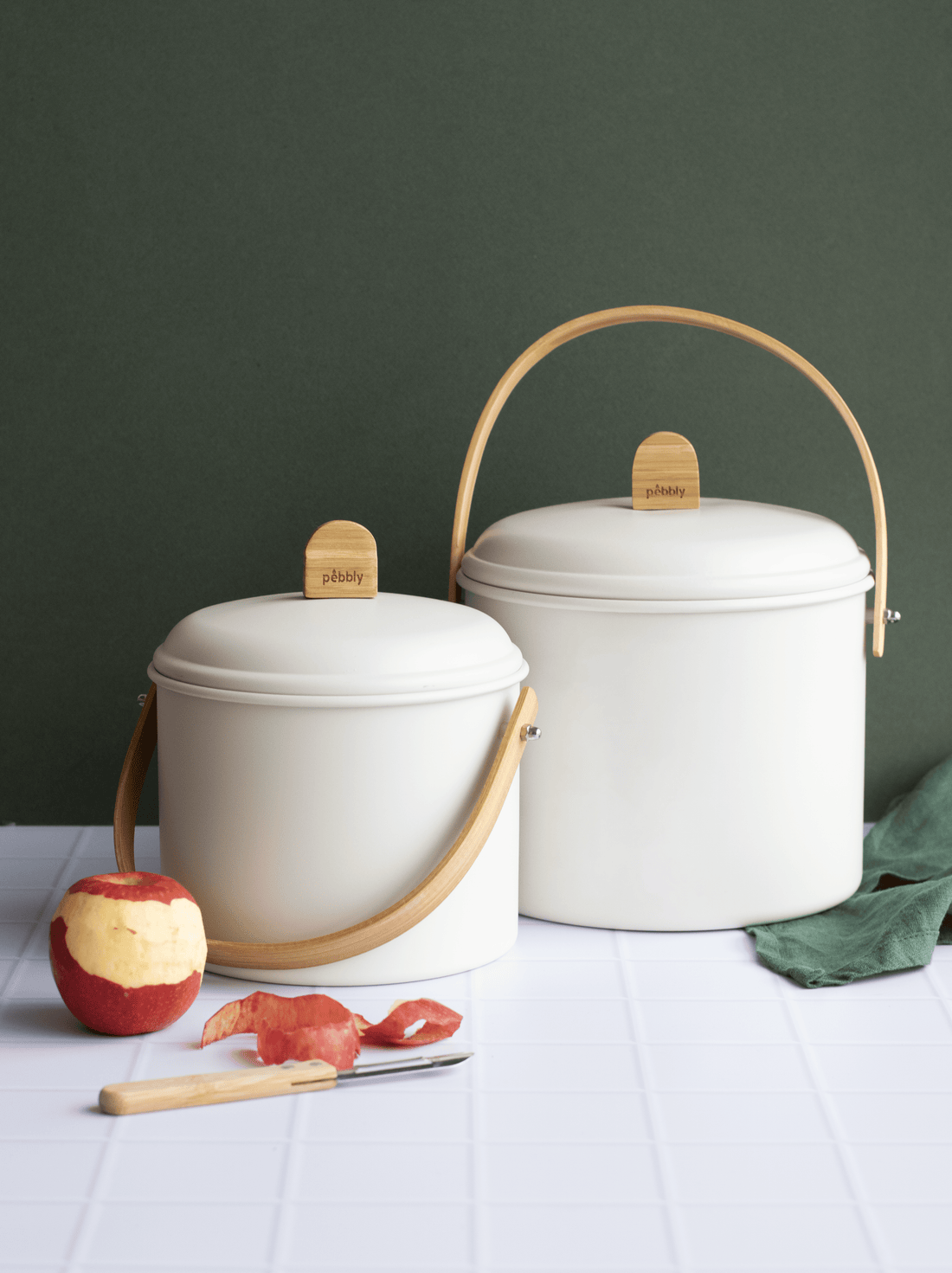
How to Start Composting
Here at Pebbly, we believe composting is one tiny step that can have a huge impact. Composting has countless benefits for the environment and is an easy way to fight food waste, right in your own kitchen. So, you’ve got your Pebbly Composting Bin and you started to repurpose your kitchen scraps. But now what? We’re here to tell you exactly what to do with your compost.
New to the world of composting? Check out some of our Composting 101 blog to learn everything you need to know!

How to Use Your Compost
During the composting process, your leftover organicscraps are discreetly consumed by all kinds of creatures, including worms,nematodes, and sowbugs. The leftover substance (meaning their waste material)becomes compost. The finished product is a dark and healthy gardenfertilizer that kind of resembles chocolate cake. The nutrient load of compostis so rich, in fact, that farmers often refer to it as “black gold.”
So, what do you do with it? Well, the “black gold” youend up with is like giving your plants the royal treatment. Compost is a potentfertilizer that helps your home garden thrive. It’s also great for growingrobust vegetables and herbs that naturally help detract pests. Mixing compostin with the soil of your houseplants is a totally free, renewable way to sourcebeneficial plant food.
Composting is a win-win for you, your garden, and the planet. Plus, it’s an opportunity to teach yourself and your family about the circular process of life and how you can easily convert waste into renewable resources. All you have to do to get your hands on this precious plant food is get yourself a compost bin and choose the method of composting that suits you best.
Along with other Zero Waste sustainability measures such as bulkbuying food products, using refillable or homemade cleaning products, andmaking low environmental impact purchasing decisions, you’re helping our planetplay the long game. It just takes one pebble to make a ripple, and just oneripple makes a wave.

How to Start Composting Where You Live
A little background knowledge of the biological processof composting will help you get started at home. Whether you just want tounderstand the process a bit better, go all in on a backyard composting setup,or simply learn about and admire the process of nature from afar, we're here toanswer all of your questions.
Did you know only 27% of the US has access to a composting service? That’sa pretty small numberconsidering that 30-40% of foodproduced in the United States ends up being wasted. We’re obviously producingenough organic waste, so how do we start turning that into compost andutilizing it for the greater good?
If you’re a part ofthis small percentage with access to a composting service, lucky you! But ifnot, then you’ll be surprised at how simple it is to set up a home operation.You don’t have to wait for the day when local facilities can do it for you…composting is something you can do right in your own backyard.
Part of the issue isaccessibility. A quick and easy way to find out if composting facilities existwhere you live is to use the EPA’s Excess FoodOpportunities Map. This will tell you if there’s a collectionservice or a drop-off location where you can dispose of your yard and kitchenscraps, and often have them turned into compost that you can collect. Even ifyou don’t plan to use it at home for fertilizer, you’re helping the environmentby not adding organic matter to landfills that can contaminate land water anddegrade the soil. And even better, no more stinky garbage.

To Summarize
Composting is a great way to reduce food waste and giveback to the planet, right from your own kitchen! Not only are you doing goodfor the Earth by composting, but you’re also getting something in return;composting converts into a nutrient rich fertilizer that will allow yourhouseplants or garden to thrive. That’s what we call a win-win situation!


